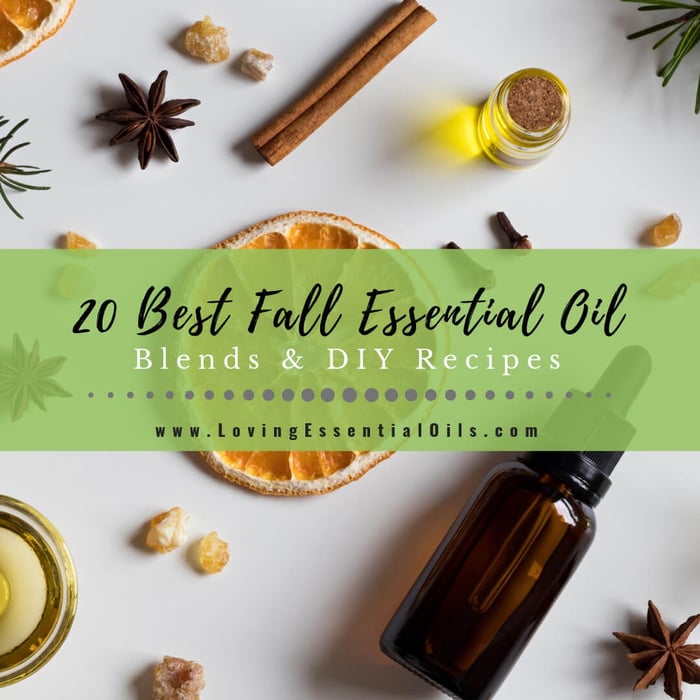Table of Contents
- Essential Oils and the Digestive System
- Essential Oils for Digestion
- 1. Ginger Essential Oil
- 2. Peppermint Essential Oil
- 3. Fennel Essential Oil
- 4. Coriander Essential Oil
- 5. Caraway Essential Oil
- 6. Star Anise Essential Oil
- 7. Cardamom Essential Oil
- 8. Spearmint Essential Oil
- 9. Basil Essential Oil
- 10. Roman Chamomile Essential Oil
- 11. Bergamot Essential Oil
- 12. Lime Essential Oil
- 13. Galangal Essential Oil
- 14. Cinnamon Leaf Essential Oil
- 15. Lemon Essential Oil
- 16. Cumin Essential Oil
- 17. May Chang Essential Oil (aka Litsea)
- 18. Melissa Essential Oil
- 19. Parsley Essential Oil
- 20. Sweet Marjoram Essential Oil
- 5 Essential Oil Digestive Blends
- Frequently Asked Questions About Digestive Essential Oil Blends
Did you know there are lots of essential oils for digestion? Essential oils have the abilities to aid in soothing many ailments of the digestive system. Whether you overate, are nauseated from traveling, or have chronic digestive problems, there are oils that can help. Read more about how to use essential oils for digestion, plus DIY recipes are included!
Can you balance your digestive system with essential oils? Although occasional overindulgence can be a good thing, it can cause problems in our digestive system if it is a habitual behavior.
Essential oils can be used to help restore balance to your digestive system if it is feeling out of control. You can find a variety of aromatherapy blends to help soothe digestive problems and get your stomach back on track.
Essential Oils and the Digestive System
There are a variety of essential oils that can be used for the digestive system, each with its own unique benefits and uses. Many spice essential oils have belly soothing properties and can help with digestion.
For example, ginger essential oil can help to reduce nausea and vomiting. You can find a complete blog post on ginger oil and nausea that includes essential oils recipes too.
Peppermint oil is often used to soothe an upset stomach or relieve indigestion. Fennel oil can also be helpful in promoting digestive health, as it can help to increase the production of digestive juices.
Ultimately, there are a variety of digestive system essential oils that can be used to promote digestive health. Keep reading to find out the best essential oils for you and your digestive system so you can incorporate them into your daily routine.

Essential Oils for Digestion
Digestive issues are extremely common, many people experience some form of digestive disease. Digestion problems can lead to poor nutritional intake, fatigue, and impaired immune function. Essential oils for digestion might be able to help with these issues!
1. Ginger Essential Oil
Common Uses: digestive upset, overindulgence, nausea, motion sickness, gas, diarrhea, loss of appetite.
2. Peppermint Essential Oil
Common Uses: upset stomach, gas, spasms, nausea, travel sickness, colic, irritable bowel. Find out more about the benefits of diffusing peppermint oil.
3. Fennel Essential Oil
Common Uses: flatulence, bloating, digestive cramps, constipation, nervous indigestion, loss of appetite.
4. Coriander Essential Oil
Common Uses: diarrhea, dyspepsia, flatulence, nausea, bloating.
5. Caraway Essential Oil
Common Uses: dyspepsia, gas, digestive spasms, poor appetite, colic.
6. Star Anise Essential Oil
Common Uses: nausea, digestive pain, indigestion, gas, cramps. Avoid if pregnant or breastfeeding.
7. Cardamom Essential Oil
Common Uses: nausea, abdominal cramping, upset stomach, gas, heartburn, diarrhea.
8. Spearmint Essential Oil
Common Uses: dyspepsia, flatulence, nausea, vomiting.
9. Basil Essential Oil
Common Uses: gas, cramping after eating, vomiting, upset stomach, indigestion, abdominal discomfort.
10. Roman Chamomile Essential Oil
Common Uses: stress-related digestive discomfort, gas, abdominal spasms.
11. Bergamot Essential Oil
Common Uses: digestive aid, abdominal cramps, gas.
12. Lime Essential Oil
Common Uses: dyspepsia, loss of appetite, digestive problems, sore throat.
13. Galangal Essential Oil
Common Uses: upset stomach, gas, motion sickness, nausea.
14. Cinnamon Leaf Essential Oil
Common Uses: sluggish digestion, constipation, stomach cramps and spasms. Dilute well for topical use (less than 0.5%).
15. Lemon Essential Oil
Common Uses: loss of appetite, digestive problems, dyspepsia, sore throat.
16. Cumin Essential Oil
Common Uses: digestive discomfort, nausea, bloating, constipation.
17. May Chang Essential Oil (aka Litsea)
Common Uses: nausea, poor appetite, stomachache, indigestion. Use well diluted (less than 0.5%)
18. Melissa Essential Oil
Common Uses: gas, colic, dyspepsia, indigestion, nausea.
19. Parsley Essential Oil
Common Uses: colic, gas, indigestion.
20. Sweet Marjoram Essential Oil
Common Uses: constipation, dyspepsia, gas, abdominal discomfort, indigestion, GI disorders. Read more about marjoram essential oil.
Our digestive system is a complex network, responsible for breaking down the foods we consume and ensuring vital nutrients are absorbed efficiently. Unfortunately, imbalances within this intricate mechanism can lead to a host of discomforts, making essential oils a valuable ally in attaining relief and restoring equilibrium.
Resources Used:
- The Encyclopedia of Essential Oils by Julia Lawless
- The Complete Book of Essential Oils and Aromatherapy by Valerie Ann Worwood
- Essential Oils: Neal's Yard Remedies
5 Essential Oil Digestive Blends
Your digestive system is the beginning of everything you do. Think about it, every time your stomach grumbles or you have to use the bathroom, your digestive tract is hard at work.
Your gut health impacts more than just digestion though. It can also affect mood, weight and even skin quality. That's why I'm here to help with essential oil blends for gut health and digestive relief!
The tummy taming oils listed above can be used either aromatically or topically on the skin to reap their therapeutic benefits. Here are 5 essential oil blends to support your digestive system.
Digestive Support Roller Blend |
Cardamom has powerful antibacterial properties that protect the digestive tract. Use this essential oil roller recipe for digestion support. Lime essential oil can be substituted for tangerine or orange as both help with belly symptoms.
Directions: Add essential oil drops to roller bottle, fill the rest of bottle with jojoba oil. Place rollerball on, roll bottle between palms of hands to blend together. To use, roll on forearms and wrists, take a few deep breaths to inhale the aroma. 3% dilution. |

Belly Discomfort Massage Oil |
This topical essential oil blend can help with bloating and belly discomfort. Give your stomach a rub with several drops of this essential oil massage blend whenever you feel discomfort.
Directions: Add all ingredients into dropper bottle, place dropper top on. Roll bottle between palms to blend. To use, apply in a clockwise motion to belly. 2% dilution. |

Queasy Inhaler |
Peppermint oil is a soothing oil that contains menthol, which helps reduce inflammation in the intestines. Basil can help with an upset stomach, give this oil blend a try.
Directions: Add drops to inhaler wick, place wick into inhaler. To use, take a deep breath of the scent, keep the cap on when not in use to preserve the aroma. |

After Dinner Belly Blend |
Chamomile is a natural antispasmodic agent that can be used to treat gas and irritation. This blend contains chamomile and other digestive oils that can be of assistance when you belly feels too full or uncomfortable after dinner. Let it support healthy digestion.
Directions: Add all ingredients into dropper bottle, place dropper top on. Roll bottle between palms to blend. To use, apply in a clockwise motion to belly. 2% dilution. |

Digestive Diffuser Blend |
Ginger essential oil has anti-inflammatory qualities that can help relieve an upset stomach and promote digestion. It is also helpful if you feel bloated from something you ate. Diffuse this oil blend with ginger for digestive issues.
Directions: Add the drops of essential oil to your aromatherapy diffuser with the recommended water for your diffuser tank. |

Frequently Asked Questions About Digestive Essential Oil Blends
Incorporating essential oils into your journey toward digestive wellness is a compelling choice. Their natural properties offer gentle, aromatic support for numerous digestive issues, granting relief and soothing discomfort.
Nurturing a healthy digestive system is instrumental in maintaining overall well-being, ensuring optimal nutrient absorption, energy levels, and immune health.
What is the significance of digestive health?
Our digestive health plays an integral role in our overall well-being, affecting not only our physical but also our mental and emotional states. A healthy digestive system ensures that vital nutrients from the foods we consume are readily absorbed, nourishing our bodies and maintaining optimal immune function.
Essential oils can support this process by invigorating the digestive organs, aiding in nutrient assimilation, and boosting our immune system's effectiveness. Essential oils can act as catalysts in reestablishing this harmony, offering a holistic approach to achieving sustainable energy levels.
Can I use essential oils for hemorrhoids?
Hemorrhoids are an incredibly common ailment, impacting numerous individuals worldwide. Blends containing cypress, lavender, and geranium essential oils have been known to provide soothing relief to this sensitive condition, providing gentle care without causing further irritation.
Their anti-inflammatory properties help to reduce swelling, while their antibacterial benefits support overall healing. You are encouraged to consult with professionals and conduct thorough research before incorporating essential oils into your life.
Can essential oils sooth digestive distress?
Dealing with indigestion, heartburn, IBS, constipation, cravings can be incredibly disruptive to our daily lives. Essential oils are cherish for the potential they hold in providing natural solutions for these common ailments.
The gentle aroma and soothing properties of peppermint essential oil can bring instantaneous relief to stomach upset. Its cooling effect helps to calm the uneasy sensation and support digestion, allowing for a sense of ease and comfort.
The comforting effects of lavender and chamomile essential oils may aid in soothing the digestive system, reducing discomfort caused by lactose consumption.
Share on Pinterest







